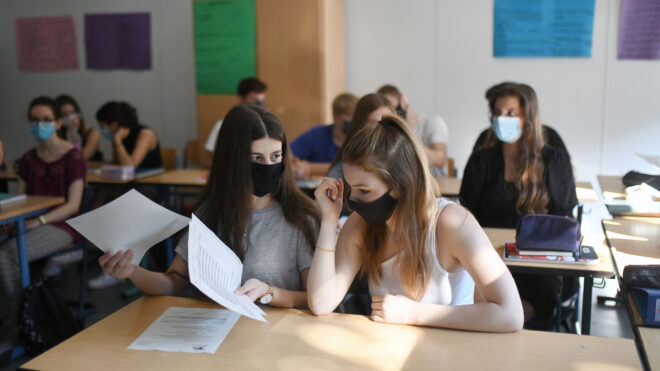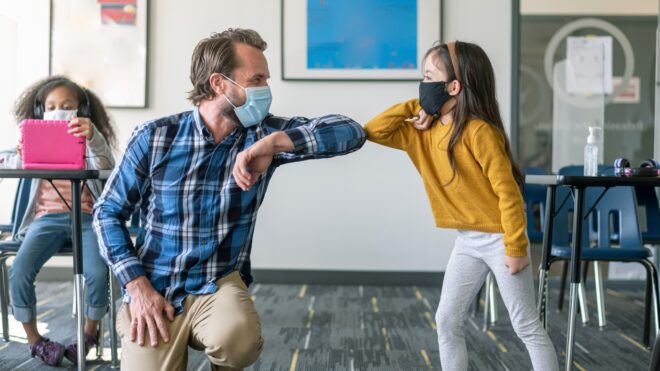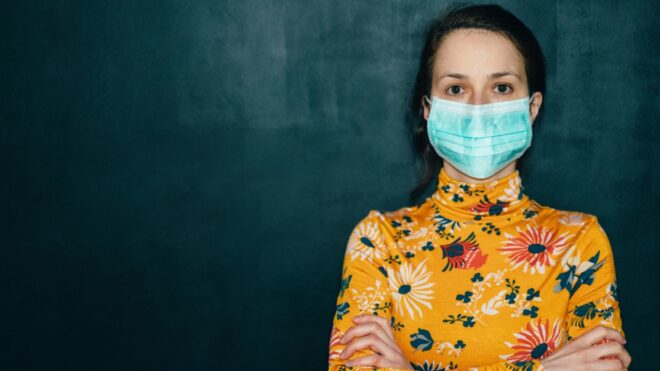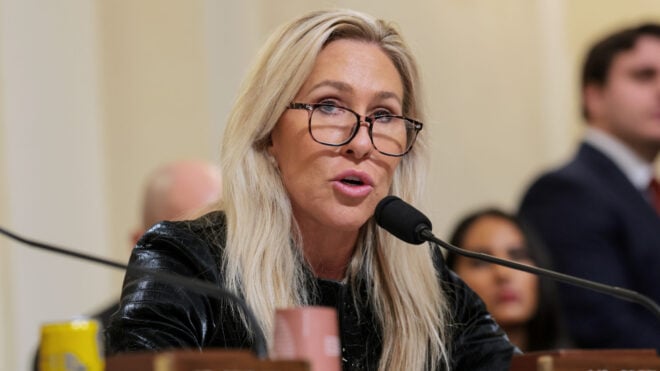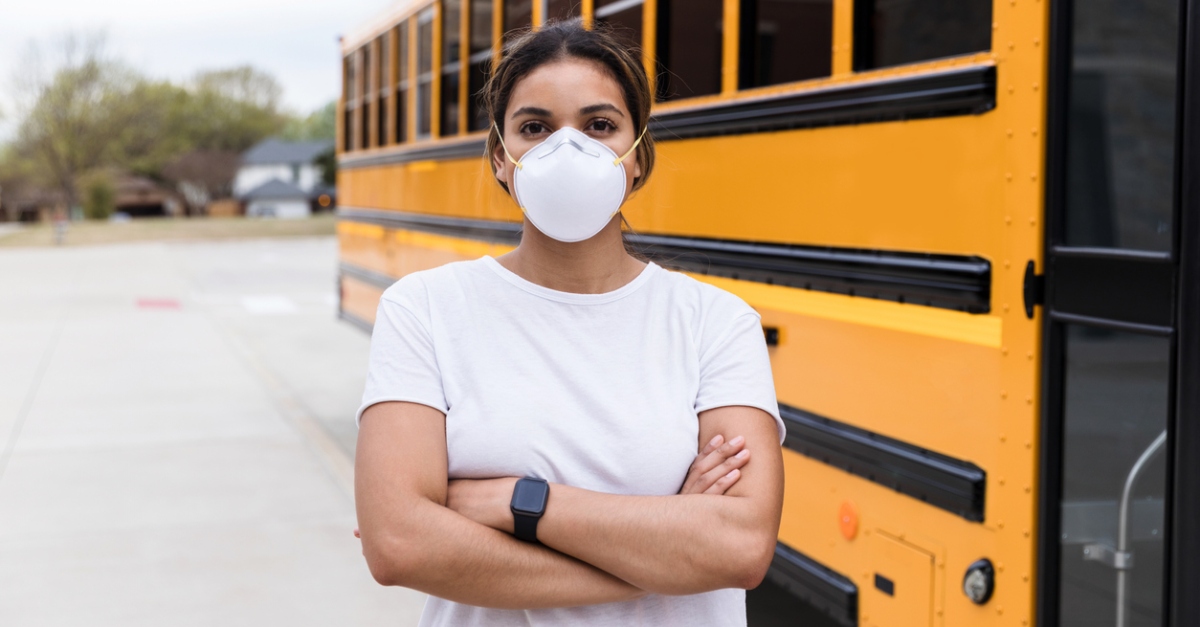
Typically, the start of the school year is a joyous time — at least, for teachers and parents. After a long break, parents look forward to letting their kids grow and socialize while at school. For teachers, they often can't wait to get back to the classroom. Plus, earning a paycheck again definitely helps boost that morale.
This year is a little different. Instead of good feelings, most teachers are plagued with fear because of the virus. For older teachers, the virus is more of a direct threat. But nobody wants to be the person silently carrying the illness that could end up killing their relatives.
While not a teacher myself, both of my parents were — and often, I think about how they'd handle the situation. My mom was a first-grade teacher and absolutely loved her classroom, year after year. My dad spent his last years as an administrator, but he was in the school district his entire professional career. These past few months, he knew how worrisome the virus was, and he took it seriously. But he likely never thought that certain states would go so far as to put their educators at risk.
For parents, there's no easy answer. With digital learning, some parents have had to quit their jobs in order to stay home and help educate their children. But inside classrooms, there are still so many risks, like trying to make sure elementary school children are always masked and sanitized. Here's what teachers who are heading back to the classroom are the most worried about.
1. Will there be accommodations for high-risk teachers?
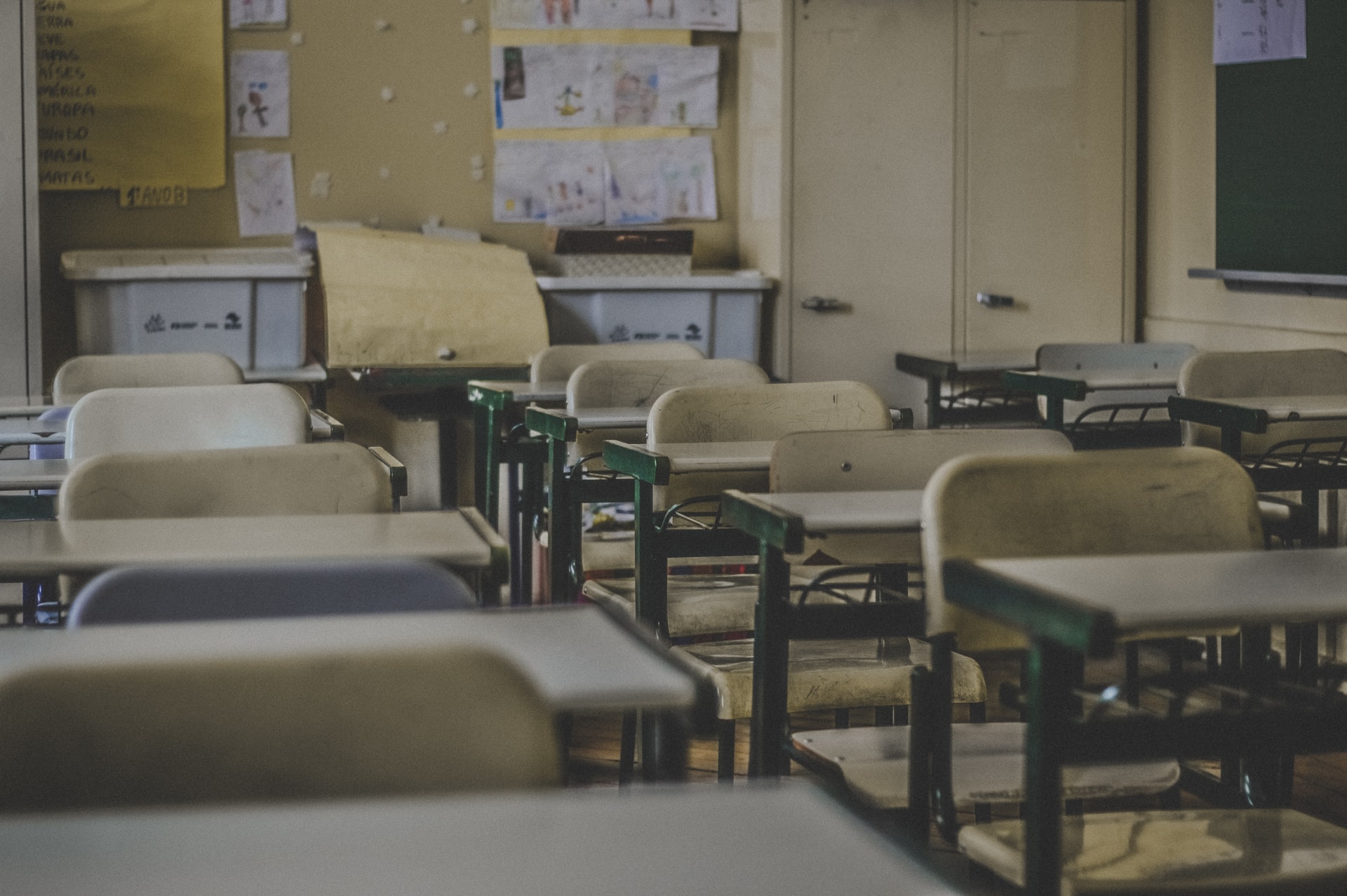
According to AARP, one in four teachers are at risk of becoming seriously ill when schools officially open. For teachers over 65 or those who have other risk factors, this could be a deadly situation. Many teachers are facing the decision of early retirement, simply because they don't know whether or not they'll be kept safe. "In the U.S., the average age of teachers is 42.4 years, according to data from the National Center for Education Statistics," writes AARP. "Nearly 19 percent of teachers are 55 and older."
2. Can the students follow protocol?
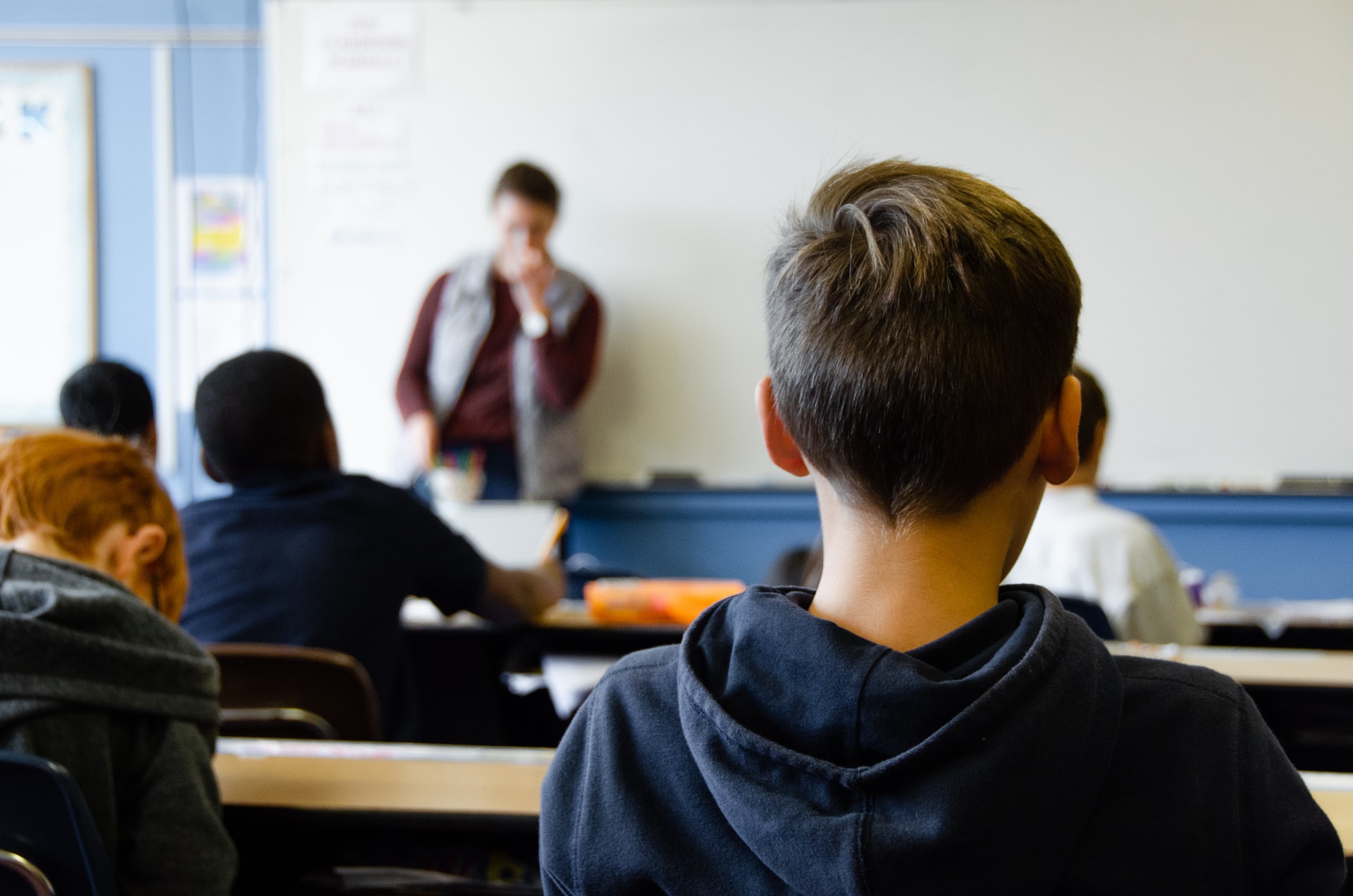
Even some adult Americans are too stubborn to wear a mask. It's even harder to control a group of first graders. For many students, wearing a mask may be scary. While it's important for parents to practice the protocol with their children, teachers will also have to help guide the way. "Teachers should be purposeful about creating classroom routines to ease any embarrassment, discomfort, worry, or anxiety students may have about wearing masks," says Edutopia. "Many of our students will not walk in already accustomed to wearing masks, so routines and predictable structures can help them feel calm and ready to learn."
3. Will teaching be as effective?

Teachers are superheroes. If you have a problem, they have a solution. But every teacher is panicking right now, wondering if they can easily shove their fears aside and teach. For teachers who may be soft-spoken, having their mouth covered can be difficult. In a classroom setting, the mask may be especially uncomfortable if there's a heatwave. And if a student gets sick, that teacher may feel responsible, even when following the rules. They have a lot weighing on their shoulders right now.
4. How can teachers control a classroom with social distancing?

Social distancing has been one of the easier ways to stay safe, but it's tough to do in a classroom. Room sizes can't change, but the class itself may get a little smaller. Abigail Lund, a fifth-grade math and science teacher in Cincinnati, talked to Education Week and admitted she had no clue what she'd be walking into when school resumed. "What does classroom life look like post-quarantine? … Are we living in a delusion that we're going back to a classroom that's a normal room?" she asked. "We have six weeks or seven weeks [left of summer]. Are these questions really going to be answered when we walk into the building?"
5. Will students with disabilities get the same education?
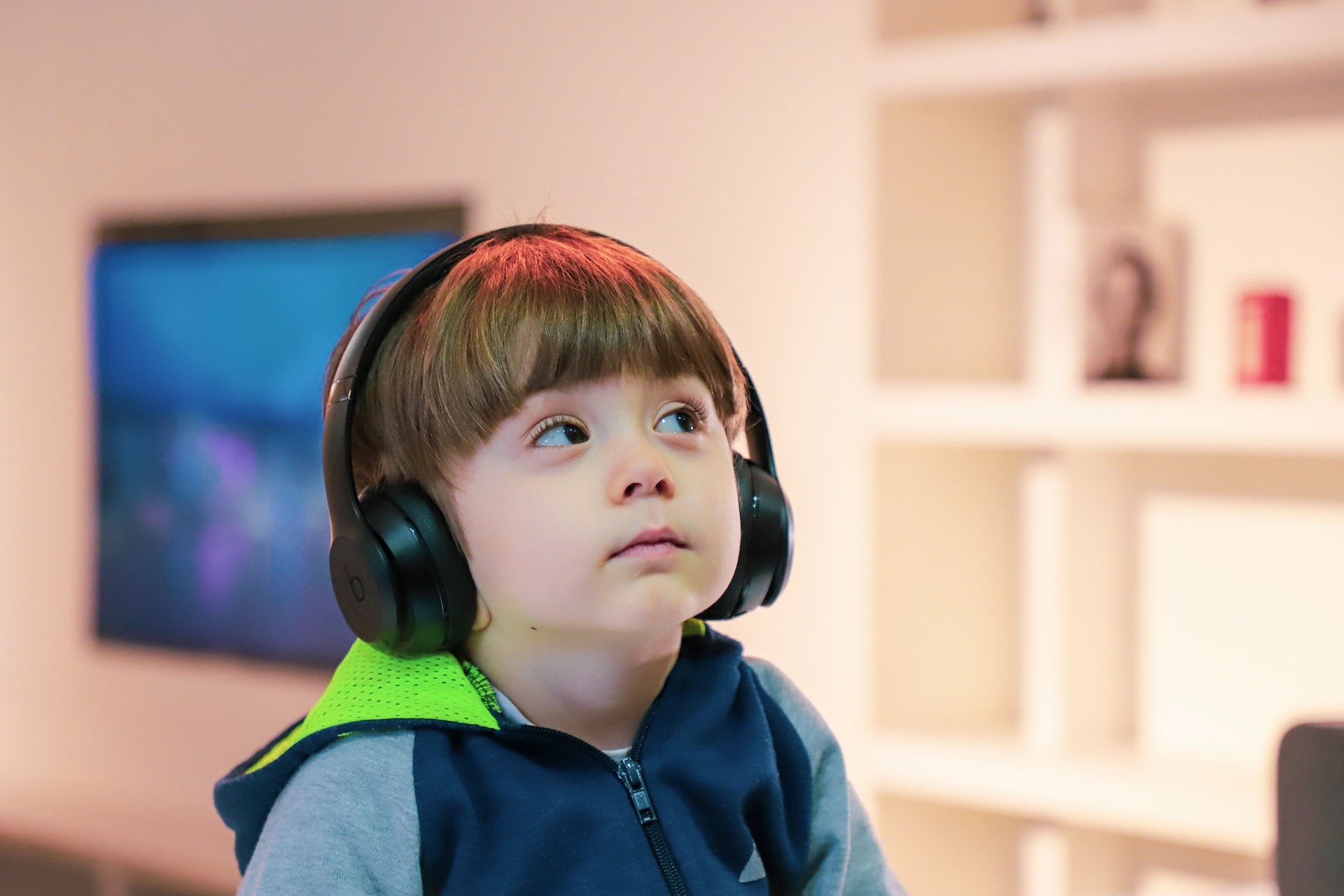
Special masks have been created just for students who are deaf or hard of hearing. These masks cover the mouth but are translucent, which is essential for lip reading. It's no guarantee that teachers will be able to find and/or use these masks, especially if they're initially unaware that a student in their class is hard of hearing. Many special needs students also need one-on-one guidance, which may be tough with distance protocols in place. Even distance learning can be a struggle. The New York Times published an article about it, stating that "teachers and administrators are not just worried about helping their students learn under exceptional circumstances, but also meeting legal mandates."
6. How tough will it be when children are out for multiple days?
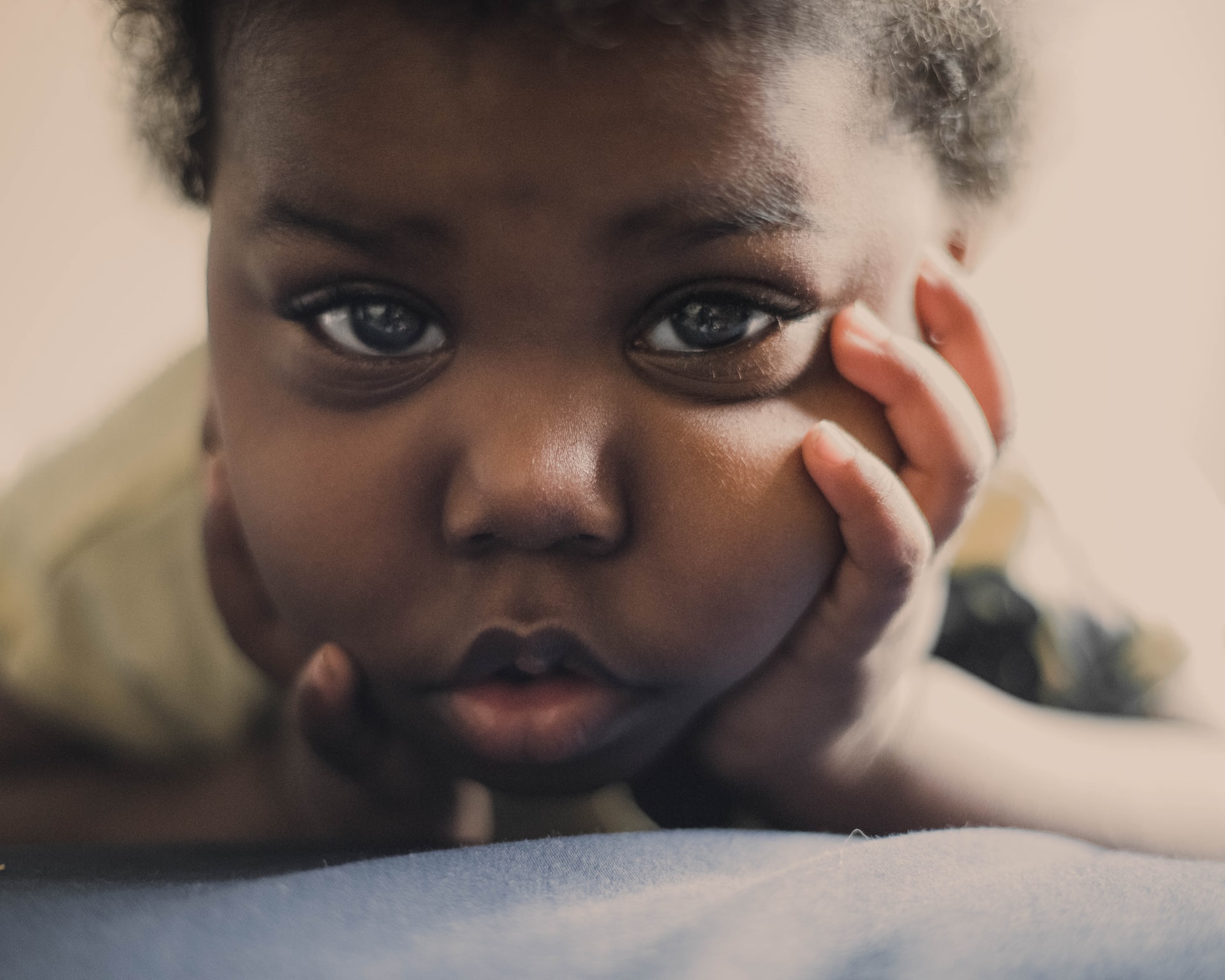
This was a fear for my daughter's preschool teacher, who has since chosen to cancel her standard program. Even though the class size would have been small, she knew that any cough or sign of a cold might mean a student was out that week. Since winter is heading our way, and runny noses will be making a comeback, it's fair to be worried that a particular student might be out for weeks to help protect everyone else. For parents who pay for private schools or programs, that can become a nightmare when it comes to the financial aspect of coming back. But it's also an important question — will your child fall behind due to multiple absences?
7. Will I feel guilty if I want to socialize with friends?

One of the hardest parts about this year is the fact that everyone has a different method of safety. Yes, we should all be following the CDC guidelines. Masks have been proven to stop the spread. But as a teacher, what happens if you get put into a situation where you may have been exposed? Or what if you want to see friends, but don't know if their safety protocols match yours?
On that note, teachers also have to trust the parents of their students. That type of trust can be tough, especially if there aren't many interactions with them prior to the school year starting.
According to Mitchell D. Lingo, PhD, the guilt may even drive some teachers out of the profession to avoid any of the possible backlashes. "We as a society will face a severe loss of human capital in our teaching force, which could devastate the education system for years to come," he writes.
8. If I stop teaching, can I pay my bills?
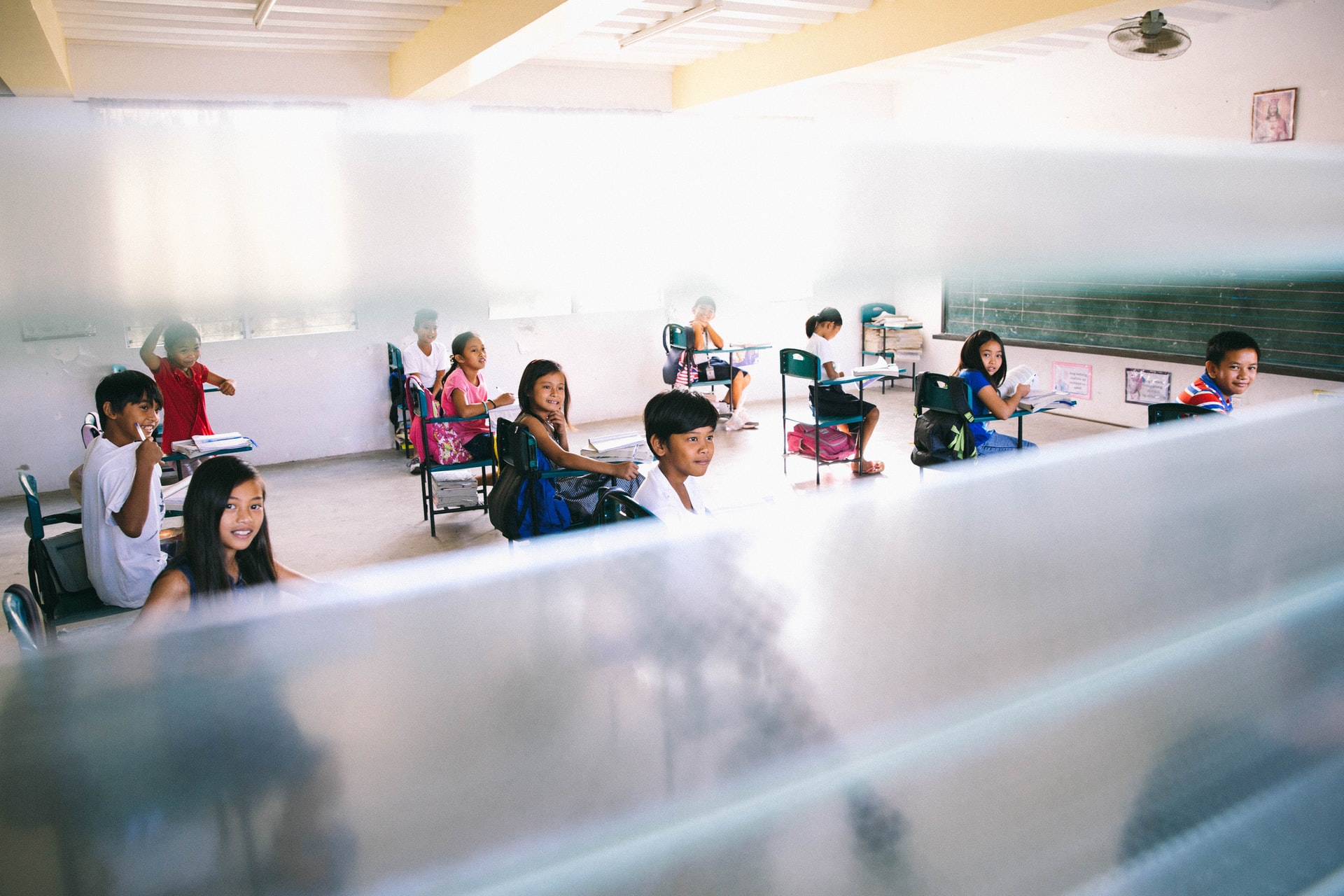
Teacher education programs are often very intense. To become a teacher, there's a lot of coursework and paperwork. It's not as easy for someone with a teaching degree to immediately find a new profession — especially in a time like this. Public teacher Elana Rabinowitz wrote an opinion piece for CNN that summed up the thoughts of many teachers quite well. "We want to be there for the kids, especially now," Elana states. "But who will be there for us — the educators? The ones who, along with other school staff, are literally being asked to risk our lives so the economy could go back to normal?"
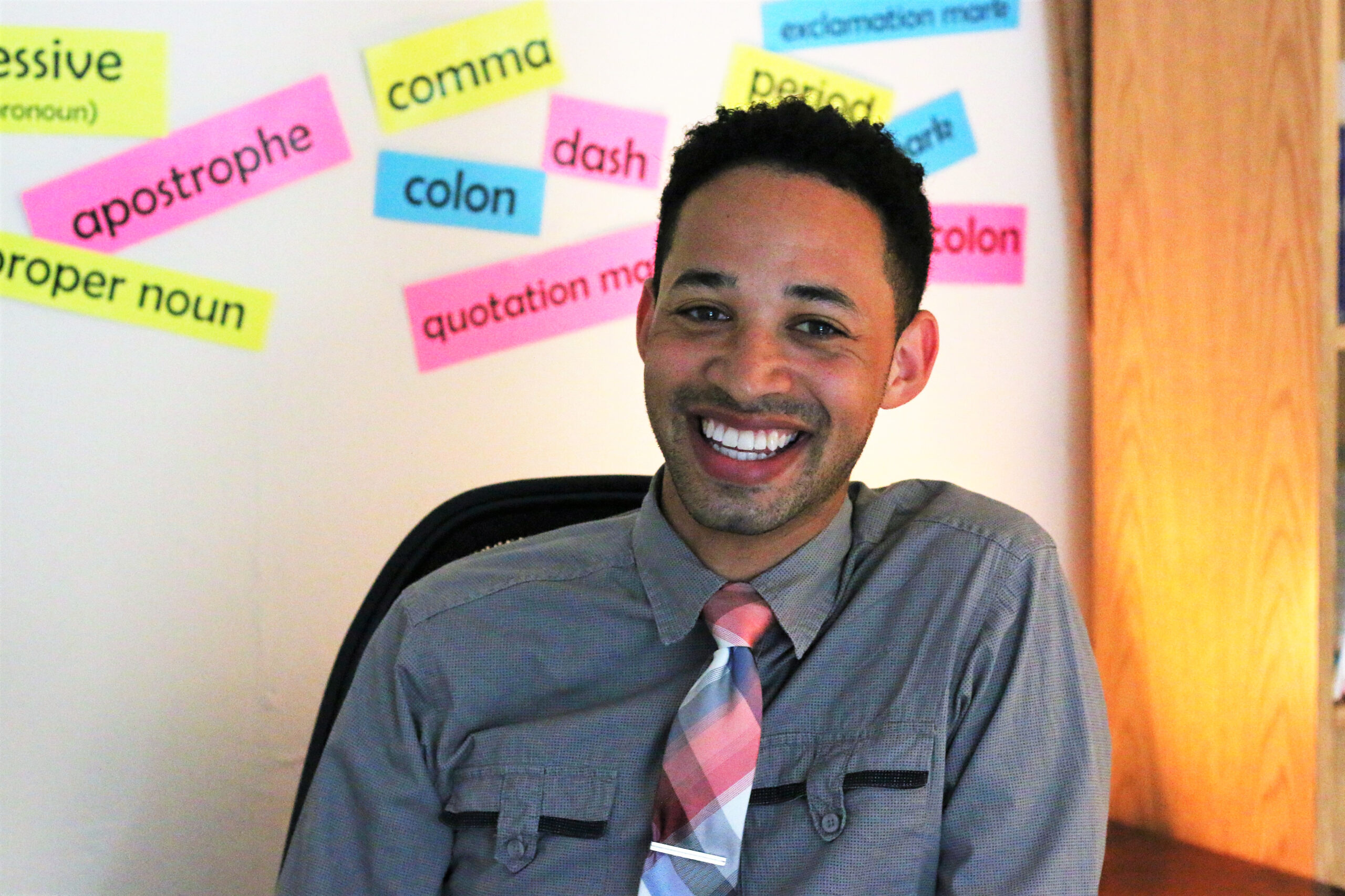
As far as the curriculum is concerned, teachers often change up their methods of teaching quite a bit. In elementary school, a new teacher may end up teaching a few different grades before settling into one position. Long story short, they know how to adapt. But this is a decision that puts their lives at risk, and it's something nobody could have prepared them for as they were becoming accredited. If they drop out now, will they be throwing away their full career? Is there any coming back from this? It's too hard to tell right now.
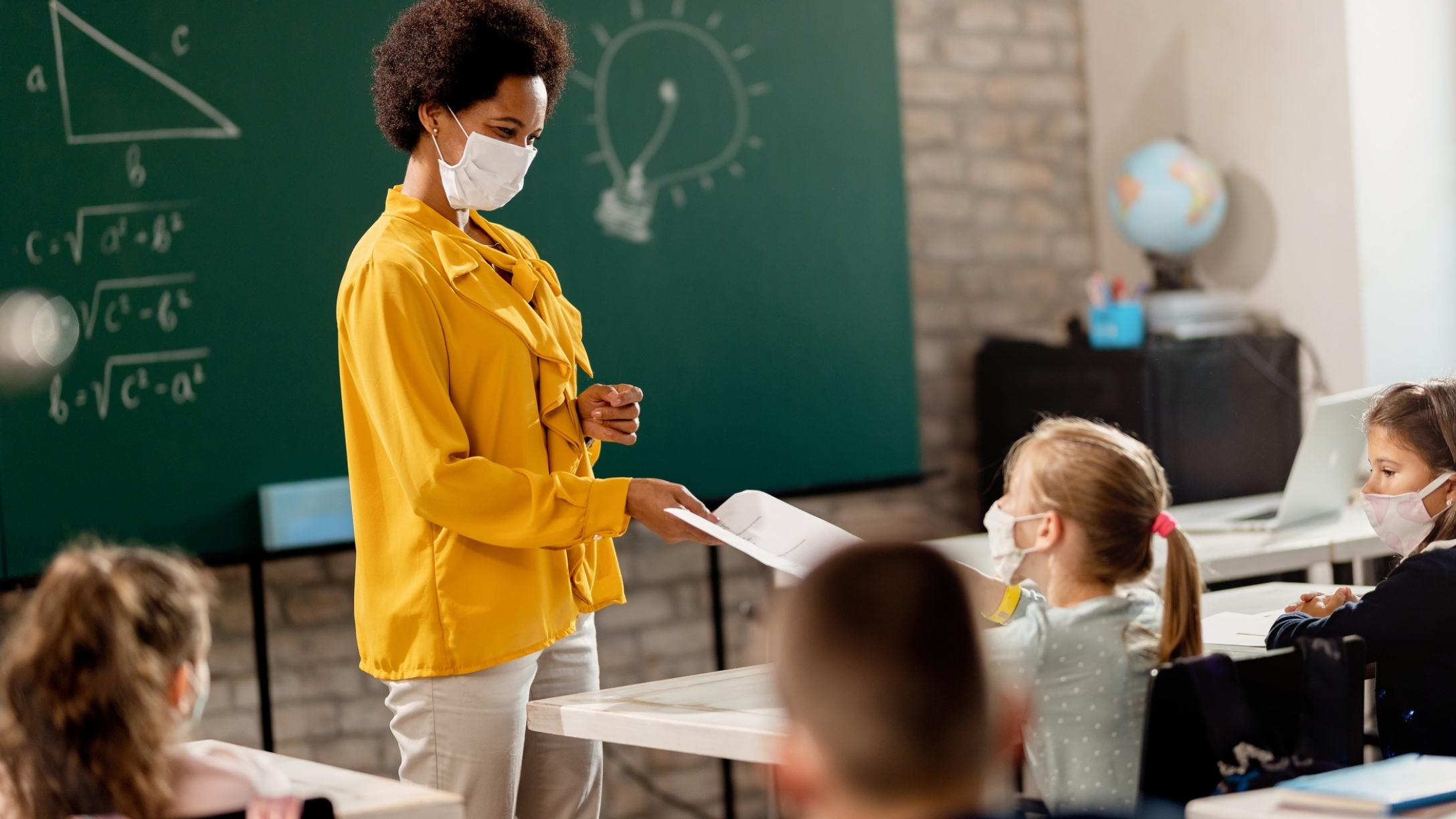
It's for these reasons, and many more, that we as parents need to be compassionate and kind to the teachers in our lives. They have the difficult task of educating and caring for multiple children during an unprecedented and very scary time in history. We all need to support each other during this strange time because ultimately we all have the same goals, to keep our children learning in a safe and healthy environment. Teachers need our help.

